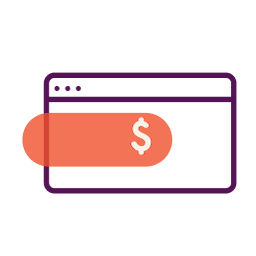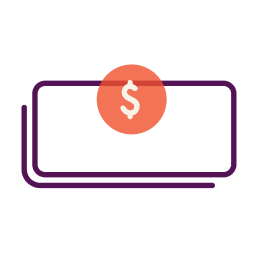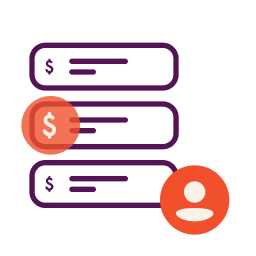There are three trends that are converging to make HELOCs an increasingly popular choice for starting a business.
1. Americans are sitting on a record amount of home equity: $16.9 trillion of it. According to the ICE Mortgage Monitor, “strong home price growth in early 2024 increased mortgage-holder equity to a record $16.9T in Q1 (2024), $11T of which can be leveraged while retaining a 20% equity cushion – also an all-time high.”
2. Americans are also starting new businesses. The number of applications for new businesses significantly outpace pre pandemic levels.
3. Finally, many entrepreneurs fund new businesses from their personal finances, including savings and personal loans. It can be more challenging to find small business loans for startups, and that may lead some homeowners to decide to tap their home equity.
The question then is whether it’s smart to start your business using a home equity loan. Here we’ll share the pros and cons so you can make the best decision for your business.
Deciding if a HELOC Is Right for Your Business: What You Must Know
Key points we’ll cover in this article:
- Some Americans have significant equity in their homes that can be tapped to start a business.
- Interest rates and repayment terms can be favorable, especially for startups or businesses in high growth periods.
- There is significant risk with this type of funding. Specifically, you can lose your home if you can’t make monthly payments.
What Is a HELOC and How Does It Work?
When your home is worth more than any mortgage(s) you owe, you have home equity. A Home Equity Line of Credit, or HELOC, allows homeowners to borrow money against that equity. Here’s how it works:
Understanding Home Equity
Home equity is the current value of your home minus any remaining mortgage payments. Let’s say your home is worth $300,000 and you owe $200,000 on your mortgage: you have $100,000 in equity.
How it works
A HELOC operates much like a credit card. It has the following features:
Credit Limit: You get approved for a maximum amount of credit based on your home equity.
Draw Period: Typically, you can borrow money up to your limit for a set period, often 10 years. During this time, you can draw money as needed and make payments on the interest.
Repayment Period: After the draw period ends, you enter the repayment period where you must pay back the principal and interest. This period usually lasts 10 to 20 years.
Pros and Cons of Using a HELOC To Start a Business
| Pros | Cons |
| Flexibility to borrow against credit limit as needed. | Limited to a percentage of home equity (usually 80% total including first mortgage). |
| Business revenue not specifically required to qualify. | Must be able to document income to support the loan, which can be harder if self-employed. |
| Good personal credit scores typically required; reports to personal credit only. | Does not establish business credit. |
| Interest rates generally lower than credit cards (except for 0% business credit cards) | Variable APRs are common, and can change if interest rates in the economy change. |
Alternative Funding Options for Startups
As a new small business owner, it’s worth considering your options for business financing. There may be better financing options that don’t require you to pledge real estate.
Business lines of credit can offer the same flexibility as a HELOC, but it may require at least one to two years in business, and documented revenues, which may require slightly higher rates.
Business credit cards also offer a line of credit (at least most do), and like HELOCs they can be start up friendly. You can use a 0% APR business credit card to finance business expenses interest-free, as long as you can pay the balance when the intro rate expires.
They typically require good personal credit and sufficient income from all sources. Another plus: most small business credit cards can also help you build your business credit score.
SBA loans are another option to consider. The U.S. Small Business Administration has an extensive SBA loan program with many business funding options, including 7(a) loans, SBA Microloans, Export loans and more. These loans are made by lenders approved by the SBA rather than the SBA itself.
Microloans
Microloans are loans for smaller amounts, say $500—$50,000. They are often made by non-profit lenders with the goal of encouraging economic growth by working with underserved entrepreneurs. These lenders may be somewhat flexible in terms of creditworthiness and other requirements.
FAQs for Starting a Business Using a HELOC
Here are some frequently asked questions that might be useful for if you’re considering starting a business using a Home Equity Line of Credit (HELOC):
Can I use a HELOC to finance a new business?
Yes, you can typically use a HELOC to finance a new business. Unless your loan agreement prohibits it, the funds from a HELOC can be used for various purposes, including business startup costs like purchasing inventory, equipment funding, or initial operations. Another option is to use your HELOC to fund personal expenses and use your personal funds to seed your business.
What are the benefits of using a HELOC to start a business?
Using a HELOC to start a business can offer lower interest rates compared to other types of loans and flexible borrowing options. That’s especially true for startups which often have limited funding options. You will only be required to pay interest on the amount you use during the draw period, not the total credit line.
How does the draw period work with a HELOC when used for business purposes?
The draw period is the time period during which you can borrow against your line of credit. During that time you can typically make interest-only loan payments. This can provide a lot of flexibility for startups, especially those not making a lot of money yet, or those that don’t have the qualifications for a business loan.
Is a Cash out Refi the Same as a HELOC?
Though they are similar products, they work differently. With a HELOC, you keep your first mortgage (if you have one) and get a line of credit on top of it. With a cash-out refinance, you will be refinancing your first mortgage balance and taking out additional money in the form of a lump sum. You end up with one loan instead of two.
Given that rates have risen in recent years, you could find yourself with a higher interest rate on that original balance.
How do I qualify for a HELOC to start a business?
You’ll need to qualify for a HELOC. Lenders will check your personal credit, and a minimum FICO score of 680 may be required.
You’ll also need proof of income, which can be challenging if you have started your business and don’t have a reliable, documented source of income. Most lenders prefer to see two years of documented income.
If you don’t meet traditional qualifications you may need to find a lender that offers low doc or no doc helocs. These loans require less documentation, but rates may be higher, and you may not be able to borrow as much as you could with traditional qualifications.
Finally, lenders will need to verify the value of your home, though a full appraisal may not be needed.
Is It Risky To Use a HELOC for a Business?
Yes, there are some serious risks when you use a HELOC to fund your business. This is not an approach to consider lightly.
First, you’re pledging your home as collateral with a HELOC. If your business fails or you just can’t make your payments, you can lose your home through foreclosure. Losing a business is stressful; losing a home makes that experience significantly more stressful.
Keep in mind that most of these loans are structured in such a way that after a certain period of time (the draw period), you’ll enter the repayment period, during which you can no longer borrow and you’ll have to make payments based on a set amortization schedule. If your business is not bringing in enough money for you to make those payments, you could risk foreclosure.
It’s worth noting here that many small business loans also require a personal guarantee. However, those PGs don’t always expose the borrowers to the risk of losing their home unless they pledge it as collateral. In many states, at least some home equity is protected from creditors by exemptions. That means that even if you default on a business loan with a PG, your property may be protected from foreclosure. An attorney can help you understand how this applies to your specific situation.
Secondly, there is interest rate risk. Most HELOCs carry variable interest rates. (There may be a fixed interest rate for the initial draw.) This could work in your favor or against it. If interest rates go up, your HELOC rate could go up, making the overall loan cost more expensive.
Note that the Federal Reserve is not expected to raise interest rates in 2024; a rate cut is more likely. That could benefit borrowers with HELOCs, but there is no guarantee that will happen, or when it will happen.
This article was originally written on May 25, 2024 and updated on June 3, 2024.




Have at it! We'd love to hear from you and encourage a lively discussion among our users. Please help us keep our site clean and protect yourself. Refrain from posting overtly promotional content, and avoid disclosing personal information such as bank account or phone numbers.
Reviews Disclosure: The responses below are not provided or commissioned by the credit card, financing and service companies that appear on this site. Responses have not been reviewed, approved or otherwise endorsed by the credit card, financing and service companies and it is not their responsibility to ensure all posts and/or questions are answered.